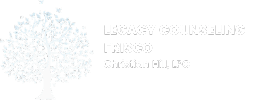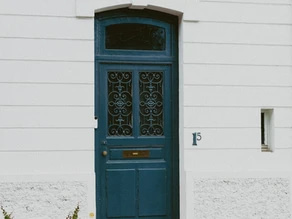Christian Hill, MA, LPC with Christian Hill Counseling

Having spent the last 20 years working with teens who self-harm, I have always believed, and still do to this day, that the real answers to teen self-harm recovery lie within the clients themselves. Even though I’ve trained hundreds, maybe even thousands, of other school counselors and mental health professionals, any opportunity I get to bring a panel of teens at different stages in their self-harm journey for questions and answers, I seize it! Although I have the experience to provide helpful strategies for teen self-harm recovery from the 30,000-foot view, I always gladly give up any speaking time I’m offered if I can get the teen panel’s individual stories at ground zero out to the public. In my teen self-harm blog, I would like to start a new series that I hope will provide more behind the scenes looks from the perspective of former clients who struggled and survived teen self-harm whose stories absolutely need to get out to help others. In this interview series, I am intentionally asking questions for the benefit of parents. I know how desperate parents can feel when they discover their child is intentionally hurting themselves. So any information that helps parents understand more about self-harm as well as how to best support and help their child overcome self-harm is unquantifiable and valuable.
The Interview with former client who used to self-harm
Today I would like to introduce you to a former client named Madison. Madison, thank you for your willingness to share your story. I know this information will be very helpful to others.
Me: Before we dive too much into the topic of self-harm, tell us a little bit about you and your current season of life.
Madison: I am 25 years old, and I am a single mom. I just finished my associates degree and am currently working towards a bachelor’s degree. In addition to going to school and being a full-time mom I try to work as much as I can.
Me: Madison, tell us a little about your childhood and the family you grew up in. Madison: Growing up my family consisted of my mom, dad, and sister. My dad worked a lot, and my mom was a stay at home parent for most of my childhood. Starting in about 4th grade I was home alone quite a bit, as my mom was busy doing things with my sister and my dad was working. It definitely always felt like my feelings were not valid and did not matter. I was in middle school when my parents got divorced. The divorce was rough at the time but looking back I am glad it happened. I was always a good student in school, straight A’s and no behavior problems. School was a major stressor for me though.
Me: Thank you. As you know, today’s topic is about self-harm and trying to find ways parents can be more helpful if their child is self-harming. Can you tell us a little bit about the first time you self-harmed and what events or situations led up to hurting choosing to hurt yourself?
Madison: Honestly, I don’t really remember the first time I self-harmed. I remember I started a little bit in 6th grade and then stopped for a while before really “getting into it” as a teen in high school. I remember when I started doing it again in high school it started because I had a feeling in my head, like an uncomfortable pressure, and cutting made it feel better. The best way I can describe it is that it feels like an endorphin high.
Me: Were there any other factors during this time, either with yourself, family, social life, school, or any other situational challenges that made the self-harm worse than what you’ve already mentioned?
Madison: I definitely think that my parents and school were the biggest contributors to my depression, anxiety, and self-harm.
Me: Can you please talk more about each of these as well as describe the impact they had on you?
Madison: I remember being really young (probably about 1st grade) and having a conversation with my mom where she asked what the most important thing in life is. I answered school. She told me no, family is most important. However I always felt like her saying that was just words and that she didn’t really mean it. I’ve always been a straight A student. I was smart and I think that’s part of the reason my parents pressured me so much about doing well in school. I think the elementary school that I went to also contributed to my anxiety towards school. The school was very strict and many of the teachers were not very nice. In third grade I had a teacher who would yell and threaten to send us back to kindergarten, and when my mom called her about it she said I needed to stop being so sensitive. So my experience with school definitely did not start out positive.
In highschool I remember a time when my dad told me he did not care about my grades, that I didn’t need to have straight A’s. This was after all of my anxiety and depression had come to light. However, a few days later my grade in honors chemistry dropped to a B. It was an error and I knew I just needed to talk to the teacher the next time I saw them to get it fixed. My dad knew about it immediately and before I had even gotten a chance to talk to the teacher he was asking me why my grade was a B. I found it ironic since just a few days earlier he had told me it would be fine if I got a B. It showed me that his words had no meaning.
I was taking honors and AP classes, had all A’s, and was top of my class when part of the way through my junior year of highschool when I couldn’t take it anymore. I had gotten to the point where I was having multiple panic attacks a day regardless of being on medication for anxiety and depression. I reached a point where I could not stand one more day of going to school. Thankfully by that point my parents didn’t force it. I ended up finishing my junior year online and then getting my GED. My anxiety got better instantly when I dropped out of school. I wouldn’t say it was completely gone, but definitely much better.
Looking back, what I think about is how truly awful it was and how much I suffered, and in the end it was pointless. As an adult it doesn’t matter what your grades were in highschool. No one cares that I got my GED instead of graduating. The impact of my school experience is that, now that I am a parent, I want my son to know it is important to know the basics, but most of the things you learn in school are unimportant and not worth making yourself crazy over. I think it is important to pass school (which includes getting a GED) but grades don’t matter in the long run. I think many parents, mine included, stress the importance of academics and doing well, when at the end of the day most of it doesn’t matter.
As for my parents, I think it mostly boils down to them being toxic people. My dad worked a lot so he wasn’t around much. My mom was a stay-at-home mom for most of my childhood. By the time I was in 4th grade I spent a lot of time home alone. And it wasn’t because my parents were working hard to make ends meet. We were pretty well off financially, so I’m sure my dad could have chosen a lower paying job so he could be around more and we still would have been perfectly fine financially. My mom spent a lot of time with my sister. My sister got very into riding horses so my mom took her to the barn every day. So I spent lots of time alone, feeling very unimportant. My mom would also call me names and was constantly annoyed by me.
My parents went through a very ugly divorce when I was about 13. While the divorce itself was rough I am glad it happened. I think if they had been civil and put their kids first it wouldn’t have been so bad. During this time, my grandparents came and stayed with us for a few months. My grandma was awful to me during that time. She would yell at me for things I didn’t do and push me around. My mom knew about it but still let them stay with us.
No matter what I did it was never good enough for my parents. In highschool I was doing great academically, I had a job that I loved, and didn’t get into trouble. My life consisted of school, work, and doing homework. Yet my parents would always put me down. They would say things like “I don’t like the person you have become.” I eventually realized there was nothing I could do that would make them happy.
When I was about 16/17 my dad and I had a disagreement. I asked him if I could work a bit later one night since a coworker had an accident and needed to go to urgent care. He said no. I was upset that he was being so unreasonable. I would have only needed to work an extra 30-45 minutes and it was an unusual circumstance. I was angry and wanted to stay at my mom’s house that night. I self-harmed a lot and thought it would be safer for me to remove myself from his house for the night. That night my dad kicked me out for wanting to stay at my moms house. It’s been almost 10 years and my dad and I still barely talk.
After that I started drinking, smoking, and staying out all night. I had tried to be the “perfect” kid but it was never good enough for my parents and it made me miserable, so I did the opposite. My mom sent me to a different state to live with my cousins when I was 17. Moving far away from my parents was the best thing I could have done. Before long my depression and anxiety seemed to “magically” clear up. I cut once soon after moving and have not done it since. I 100% believe that what “cured” me was getting away from my parents.
Me: Madison, what you just shared is so important for parents to hear. Although parents may have good intentions of pushing their children to excel, they must also realize what messages are most important other than school, and at what point does focusing on grades so much become counterproductive? I think we could do a segment just on grades and parenting, but we will save that for another time. Anyways, now that we understand more about your childhood, let’s focus more on the self-harm itself. Although I know the answers to these next questions can be complicated, please help our readers understand more. One, why were you self-harming? Two, how was self-harm helping you?
Madison: I think for me self-harm was mainly about the endorphin high. The quick and immediate release of some of the stress and pressure of life. For whatever reason hurting myself made me feel better, but getting hurt on accident did not. I think that may be something that can be confusing to people who have never self-harmed. If I were to cut myself, I would feel the endorphin rush and feel better, if I were to accidentally get a paper cut, burn myself, etc. it would just hurt. So the intentional pain, while it would still hurt, would also feel good, but being in pain that was not self-inflicted would only hurt.
Me: Can you share how your self-harm progressed over time as far as frequency and severity, as well as discuss any of your thoughts on self-harm and addiction?
Madison: It started out as shallow cuts and then ended up progressing to the point where I needed stitches multiple times. And I don’t feel like I really have any thoughts on self-harm. It’s just not something that I ever think about anymore
Me: What is one thing you would tell parents who have recently discovered their child is self-harming?
Madison: I guess I would tell parents to listen to their kids. For a long time I wanted to get away from my parents and they wouldn’t let me go. When I finally did get away from them my mental health quickly got better, and stayed better. My anxiety and depression basically disappeared. I think some parents think their kids are too young to know what they need and make decisions for themselves, but maybe if they listened they could find a solution. I would also tell parents to be truly honest with themselves when considering if they are part of the problem.
Me: What is one thing you would say to a teen who was thinking about trying self-harm? Madison: Honestly probably nothing. My past was rough but it has led me to where I am today, and I do not regret it. I guess if anything I’d tell them to just make sure they live long enough to be an adult, because it is way better than being a kid.
Me: Please just share any closing thoughts that come to mind that would be helpful to parents and others in understanding self-harm as well as how to help.
Madison: Listen to the teen. They might know what they need in order to get better. Parents don’t always know best. Also, there is nothing wrong with leading a mediocre life. Stop trying to push your kid to be “the best” if it comes at the expense of their happiness and mental health.
Want more information or support? Join my free private FB self-harm support group
If you or someone you know is struggling with self-harm, please reach out. Teens and young adults who self-harm get better all the time. There is help; there is hope.
Christian Hill, LPC
Christian Hill Counseling
christianhillcounseling@gmail.com
719-233-8336



